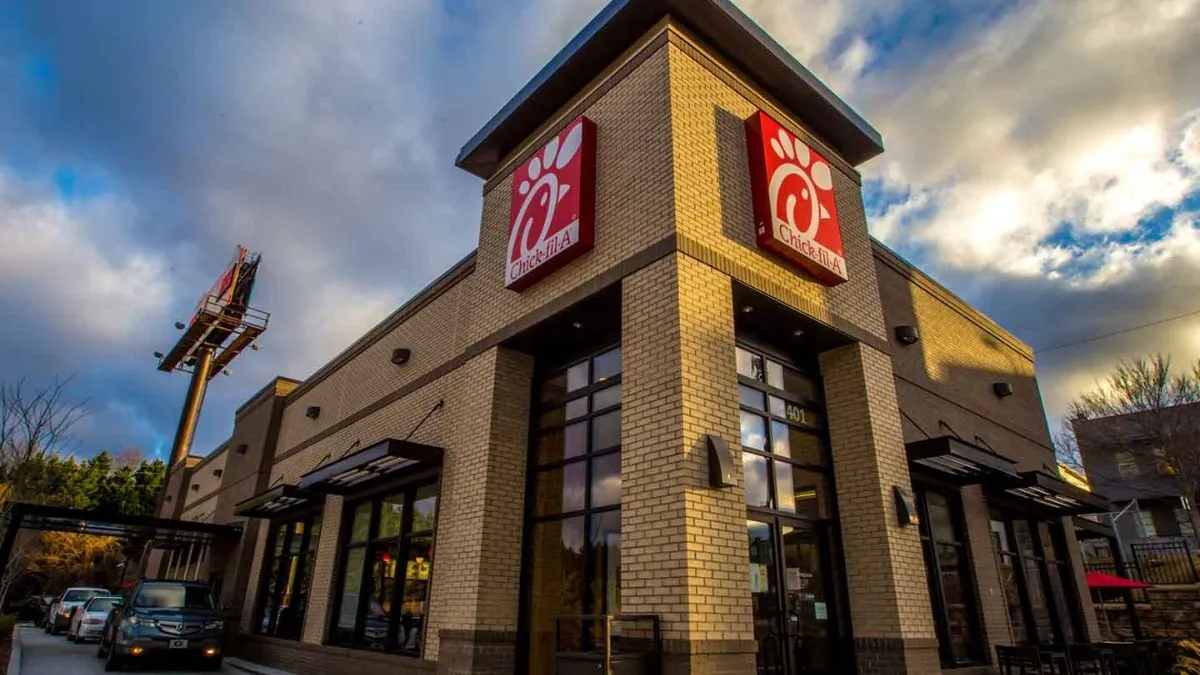Dive Brief:
- Two Chick-fil-A customers filed a proposed class action lawsuit against the chain in federal court in New York on Sept. 28, alleging that Chick-fil-A has been deceitful in its promise of a flat, low-price delivery fee, 8. Chick-fil-A did not respond to a request for comment on this lawsuit before press time.
- The complaint claims Chick-fil-A usually charges a delivery fee of $2.99 to $3.99, but its food prices on its website and app for delivery are 25% to 30% more than in-store, making "Chick-fil-A's promise of a low-cost delivery patently false." According to the lawsuit menu prices for pickup do not have a similar markup.
- Offering higher prices online for delivery versus in-store has become a common restaurant practice, especially among large chains, to make up the cost of delivery operations. Chipotle, for example, has been testing different pricing models, such as increasing its delivery menu prices by 13%.
Dive Insight:
Though Chick-fil-A isn't alone in its upcharge on food ordered for delivery, the degree of the markup could be a stumbling block for price-conscious customers.
A Gordon Haskett analysis found that the chicken chain had the highest markup for delivery versus pickup meals, at almost 30%, of the 25 fast food chains it evaluated. The firm found that average fast food prices are 15% higher for delivery than for pickup.
The issue presented in the lawsuit, which was filed in the U.S. District Court for the Southern District of New York, hinges on a perceived lack of transparency about pricing practices on Chick-fil-A's part.
"By unfairly obscuring its true delivery costs, Chick-fil-A deceives consumers and gains an unfair upper hand on competitors that fairly disclose their delivery charges," the lawsuit states. The suit further claims that other restaurant, such as Del Taco and El Pollo Loco, have been clearer about how much is being charged for delivery on their apps and websites. The Chick-fil-A lawsuit also states that Instacart's app discloses that prices may be higher versus in-store.
More consumers have become aware of the difference in cost between food ordered for delivery and food ordered for pickup, pushing companies to respond. Uber Eats, for example, added disclosures to its app earlier this year after collaborating with attorneys general from Washington, D.C., and Pennsylvania to provide more pricing transparency around in-app orders versus orders placed at a restaurant.
Barring a major class action settlement, this lawsuit is unlikely to result in significant changes to Chick-fil-A's delivery channel. But the suit may signal a greater need for transparency and added disclosures. Chick-fil-A is also testing more cost-effective ways to deliver, and recently partnered with Kiwibot, a robotic delivery service, in Southern California to bring food to people within a mile away. This service usually costs about $1.99 per order. The chain also is piloting three virtual brands through its own delivery service, which could help mitigate some of the commissions third-party companies typically charge restaurants.












